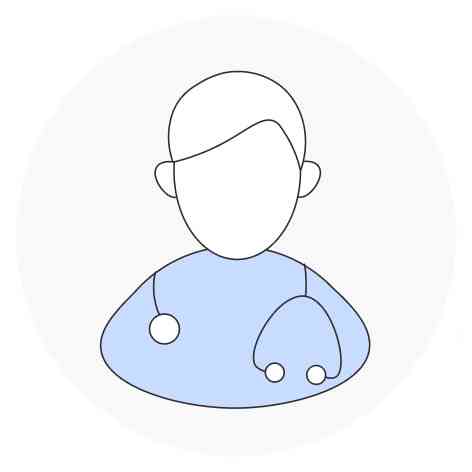Discover advanced Prostate Disorders surgery solutions to relieve pain and restore comfort. Our expert team specializes in minimally invasive procedures, ensuring effective treatment for corns and related foot conditions to improve your quality of life.
Book Your Free Second Opinion
30k+
Surgeries Done
50k+
Departments Treated
150k+
Conditions Treated
3k+
Specialist Doctors
200+
Cities
Prostate Disorders Introduction
The prostate is a small gland in the male reproductive system that plays a vital role in the production of semen. This walnut-shaped organ is positioned in front of the rectum and just underneath the bladder, encircling the urethra near the bladder neck. It is responsible for secreting a milky fluid that combines with sperm to form semen. Any disruption or abnormality in the prostate can lead to various prostate disorders, affecting a man's urinary and sexual health. Understanding the function and anatomical location of the prostate is crucial in comprehending the potential issues that can arise in this essential gland.
What You Get From MediBuddy
Get an Expert Second Opinion
Find Top Cashless Hospitals
Find Surgery Cost Estimate
Verify Insurance Coverage
Why MediBuddy For Health Care

Enhanced Quality of Care
Constant support, a network of premium hospitals and top-tier surgeons.

End-to-End Management
Your only focus should be to go and get your procedure done. Leave the rest to us.

Continuous Guidance
Any problem you may face will be resolved with one phone call.

Easy financing support
We bring you the best deals, EMI options without compromising on quality
Types Of Prostate Disorders
Prostate disorders encompass various conditions that can affect the prostate gland. The most common types of prostate disorders include: - Prostatitis: This condition involves inflammation or swelling of the prostate gland. It can be acute or chronic and is often caused by bacterial infection. Symptoms may include pain in the pelvic area, discomfort during urination, and flu-like symptoms. - Benign Prostatic Hyperplasia (BPH): Also known as an enlarged prostate, BPH is characterized by non-cancerous growth of the prostate gland. This condition primarily affects older men and can lead to urinary symptoms such as frequent urination, urgency, and weak urine flow. - Prostate Cancer: Prostate cancer is a malignant growth in the prostate gland. It is one of the most common types of cancer in men. Symptoms may include blood in the urine, difficulty urinating, erectile dysfunction, and pain in the lower back or pelvis. Each type of prostate disorder presents with distinct symptoms and requires proper evaluation and management by a healthcare professional. It is important for individuals experiencing any prostate-related symptoms to seek medical advice for timely diagnosis and appropriate treatment.
How Common Are Prostate Disorders
Prostate disorders, particularly prostatitis, are quite common among individuals assigned male at birth. Here are some key statistics that highlight the prevalence of these conditions: - More than 2 million individuals assigned male at birth seek medical attention annually due to symptoms associated with prostatitis. - It is estimated that up to 50% of all individuals assigned male at birth will experience symptoms of prostatitis at some stage in their lives. These figures underscore the significance of prostate disorders and the need for increased awareness and proactive healthcare management in this regard.
Complications Of Prostate Disorders
Complications of Prostate Disorders: - Prostate disorders can lead to various complications that may impact the urinary, sexual, and overall health of an individual. - One common complication of prostate disorders is urinary retention, where the bladder does not empty completely, leading to discomfort and increased risk of urinary tract infections. - Another complication is hematuria, which is the presence of blood in the urine, often caused by inflammation or infection of the prostate. - Prostate disorders can also result in erectile dysfunction, impacting sexual function and relationships. - In some cases, untreated prostate disorders can lead to chronic pelvic pain syndrome, causing persistent discomfort and affecting quality of life. - More severe complications of prostate disorders may include acute urinary retention, kidney damage, and even prostate cancer if left untreated or undiagnosed.
When To See A Doctor For Prostate Disorders
When to see a doctor for Prostate Disorders: - If you experience frequent or difficult urination, pain or discomfort while urinating, or blood in the urine, it is advisable to seek medical evaluation. - Any sudden changes in urination patterns such as increased urgency, weak urine flow, or the inability to urinate should prompt a visit to a healthcare provider. - Additionally, if you encounter pain in the back, hips, or pelvis that is persistent and not alleviated by over-the-counter pain medication, a consultation with a doctor is recommended. - Men over the age of 50 or those with a family history of prostate-related issues should consider regular check-ups to monitor prostate health, even in the absence of symptoms. - It is crucial to promptly consult a healthcare professional if you notice any unusual symptoms related to the prostate, as early detection can lead to better outcomes and effective management of prostate disorders.
What To Expect During A Doctor'S Appointment For Prostate Disorders
During a doctor's appointment for Prostate Disorders, there are certain aspects to be aware of: - Your doctor will likely start the appointment by asking about your medical history and any symptoms you may be experiencing related to prostate issues. - You may be asked about your urination patterns, any pain or discomfort you are feeling, and any other relevant symptoms that could indicate a prostate disorder. - A physical examination of the prostate gland may be conducted, which typically involves the doctor feeling the prostate through the wall of the rectum to check for any abnormalities or enlargement. - Depending on the findings from the physical examination and your symptoms, further tests may be recommended. These tests may include blood tests, urine tests, or imaging tests like an ultrasound or MRI to get a clearer picture of the prostate's health. - It's important to be open and honest with your doctor about any concerns or symptoms you may have, as this will help in the accurate diagnosis and treatment of any prostate disorders.
Meet Our Doctors

Dr Praveenkumar T
Urology
25 Years
Book Free Consultation

Dr Sivashankar
Urology
17 Years
Book Free Consultation

Dr Srivathsan R
Urology
16 Years
Book Free Consultation
Frequently asked questions


